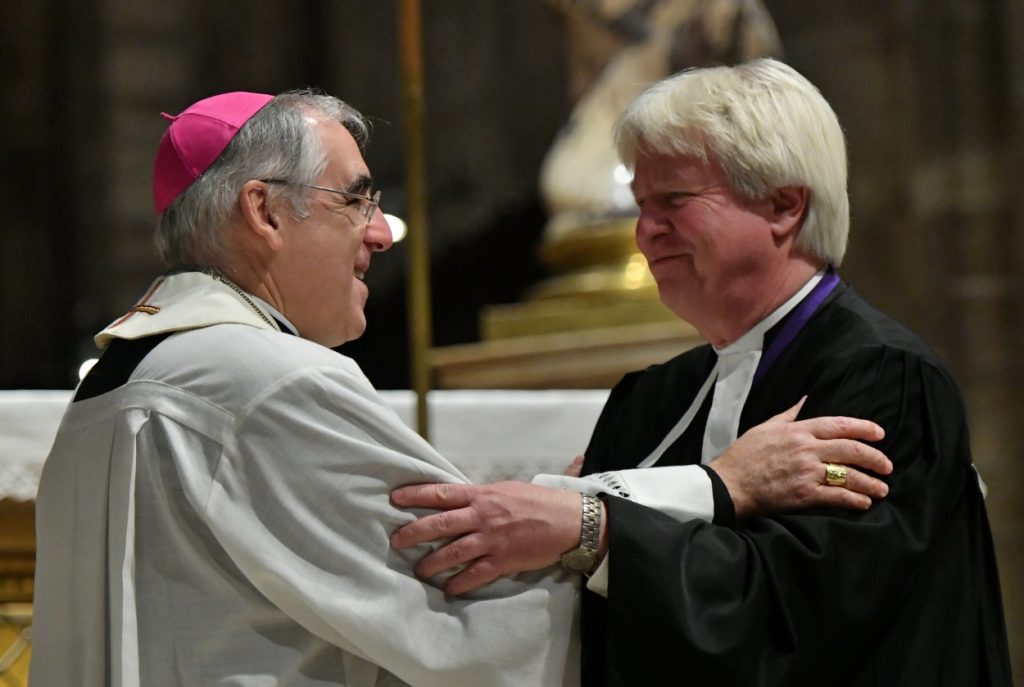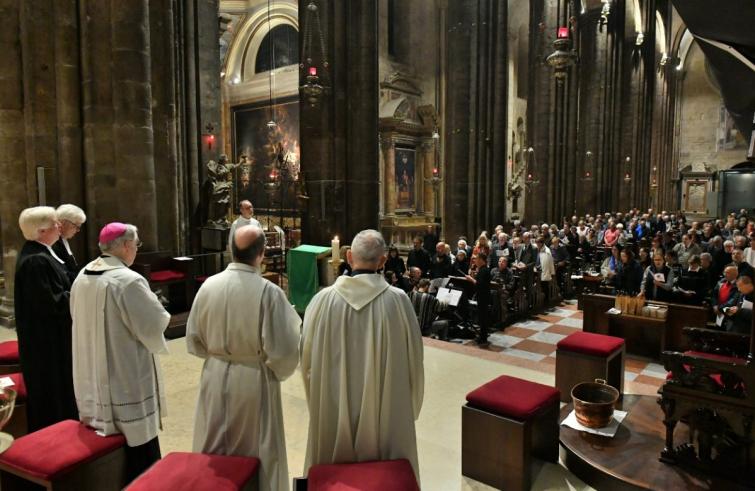Fifth centenary of the reformation
The past of every Church and of every man is charged with positive and negative memories alike: while negative memories ought to be acknowledged and entrusted to God’s mercy, the positive ones ought to be sustained and transmitted to future memory, serving as an encouragement and a force for the future journey

Significant steps along the common path of Lutherans and Catholics are not a recent thing. Moreover, all Christian Churches feel close to the ecumenical movement: albeit with different emphases, marked by more or less open approaches, all the Churches are aware that today we cannot stand indifferent in the face of the appeal to Christian unity. Indeed, far from being a response to a current trend, this awareness is motivated by the acknowledgement that especially over the past decades
The vocation to unity is an essential part of being Christians,
and that one of the most concrete applications of the Gospel in our present times consists in the commitment to building communion.

Mindful of this fundamental awareness, the Lutheran Evangelical Church in Italy and the Italian Bishops’ Conference, expressed in the Office for Ecumenism and Dialogue, met in Trent for a two-day study Convention with a meaningful title: “What can and must remain of Martin Luther’s heritage?” As one might imagine, the event took place on the occasion of the Fifth Centenary of the Protestant Reformation. In fact the intention was to conclude this anniversary with an official event without shelving it and by looking ahead, reflecting on the future developments of this common path. Indeed, this path was not undertaken recently: it is the result of significant and encouraging historical developments and gestures which to a certain extent bind us to continue following this road, and to do so together. The theological reflections of the past two days were entrusted to two experts: Father Angelo Maffeis, who among his many offices serves as member of the Joint Roman Catholic/Lutheran Commission; and Lutheran Bishop Karl-Hinrich Manzke, representative for relations with the Roman Catholic Church in Germany. Both speakers stressed the fact that
Luther’s deepest solicitations continue prompting reflections in all those yearning to be closer to God and with greater coherence; since all that Luther was seeking was to live the Gospel in full and in truth.
Professor Brunetto Salvarani, from the Theological Faculty of Emilia Romagna, and Pastor Heiner Bludau, provost of the Lutheran Evangelical Church in Italy, focused their reflections on the process of healing past memories. In fact, while negative memories ought to be acknowledged and entrusted to God’s mercy, the positive ones ought to be sustained and transmitted into the future, serving as an encouragement and a force for the continuation of this journey. Participants in the seminar discussed ways of giving concrete form to future progress by sharing ongoing experiences and feasible proposals with the aim of transmitting them to our respective Churches for their acknowledgement. The common prayer in the Cathedral was unquestionably the most solemn and intense moment of the meeting. The beautiful late-Romanesque holy site, that witnessed the decree of the Council which in the same city of Trent took a firm stand against the Lutheran world, became the coffer of a precious gift: the mutual, joint washing of the feet of the Sister Churches.

The bishop of Trent Lauro Tisi, and Lutheran bishop Karl-Hinrich Manzke, repeated one by one the clear gesture of the Lord, and proceeded to wash together the feet of a Lutheran woman and of a Catholic man. Everyone was represented, in the act of the washing of the feet and in the act of letting their feet be washed by their brother.
It is a meaningful, encouraging, provoking gesture; a gesture that may even hurt in the realization that it had been set aside. It is a committing gesture not to be trifled with, a gesture that becomes the characterising feature of belonging that extends beyond the sense of belonging to a Church: it means belonging to the Gospel, and even more, it means belonging to God Himself. In fact: “If I then, your Lord and Teacher, have washed your feet, you also ought to wash one another’s feet” (Jn 13,14). Thus, there is no alternative!
(*) director of the National Office for Ecumenism and Dialogue of the Italian Bishops’ Conference